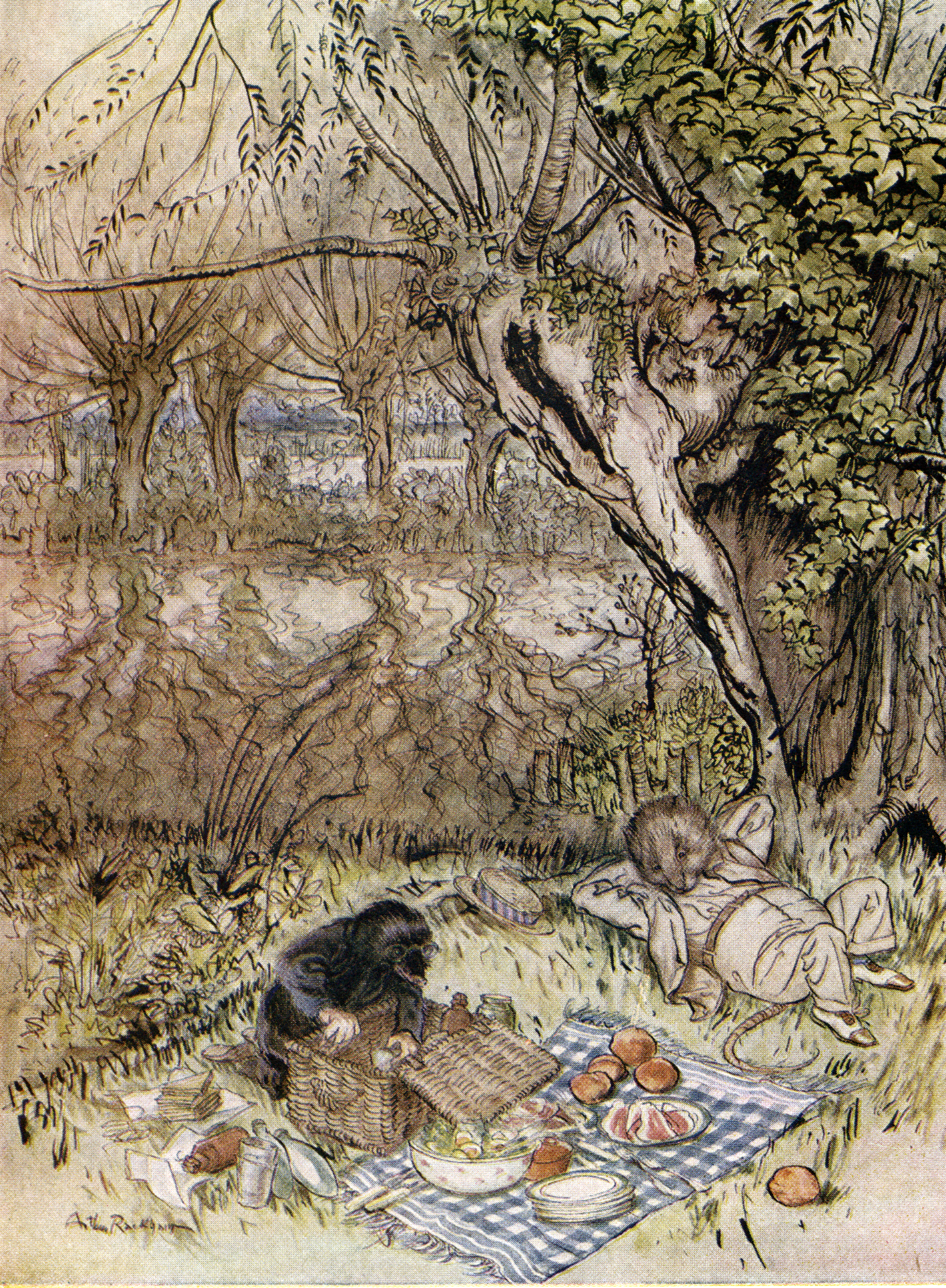 Rackham’s final project was a set of illustrations for Kenneth Grahame’s The Wind in the Willows. He was suffering from rheumatism and dying of cancer. Yet, he completed a series of twelve scenes, two of which are of Ratty and Mole’s picnic on the...
Rackham’s final project was a set of illustrations for Kenneth Grahame’s The Wind in the Willows. He was suffering from rheumatism and dying of cancer. Yet, he completed a series of twelve scenes, two of which are of Ratty and Mole’s picnic on the...
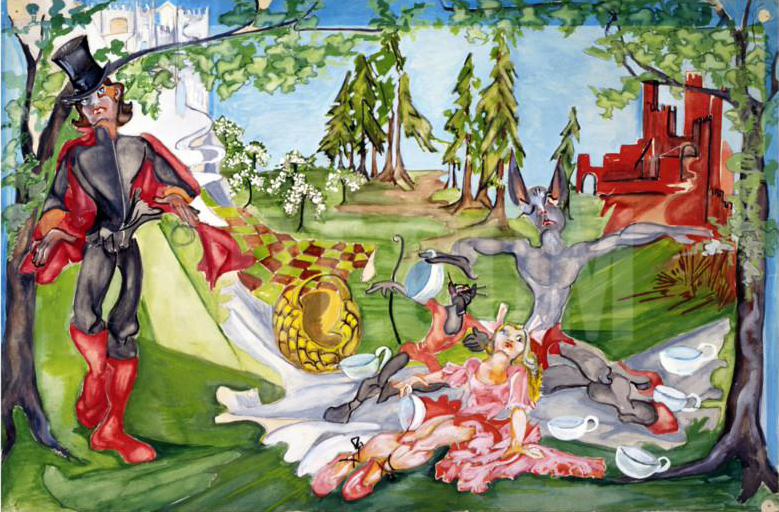 It’s unpicnicky. A Mad Tea-Party is agitated and foreboding, perhaps suggesting Fitzgerald’s unfulfilled (unrealistic) desire to become a ballet dancer. Despite the allusion to Carroll’s Alice in Wonderland, this tea party is without humor. If Fitzgerald is Alice,...
It’s unpicnicky. A Mad Tea-Party is agitated and foreboding, perhaps suggesting Fitzgerald’s unfulfilled (unrealistic) desire to become a ballet dancer. Despite the allusion to Carroll’s Alice in Wonderland, this tea party is without humor. If Fitzgerald is Alice,...
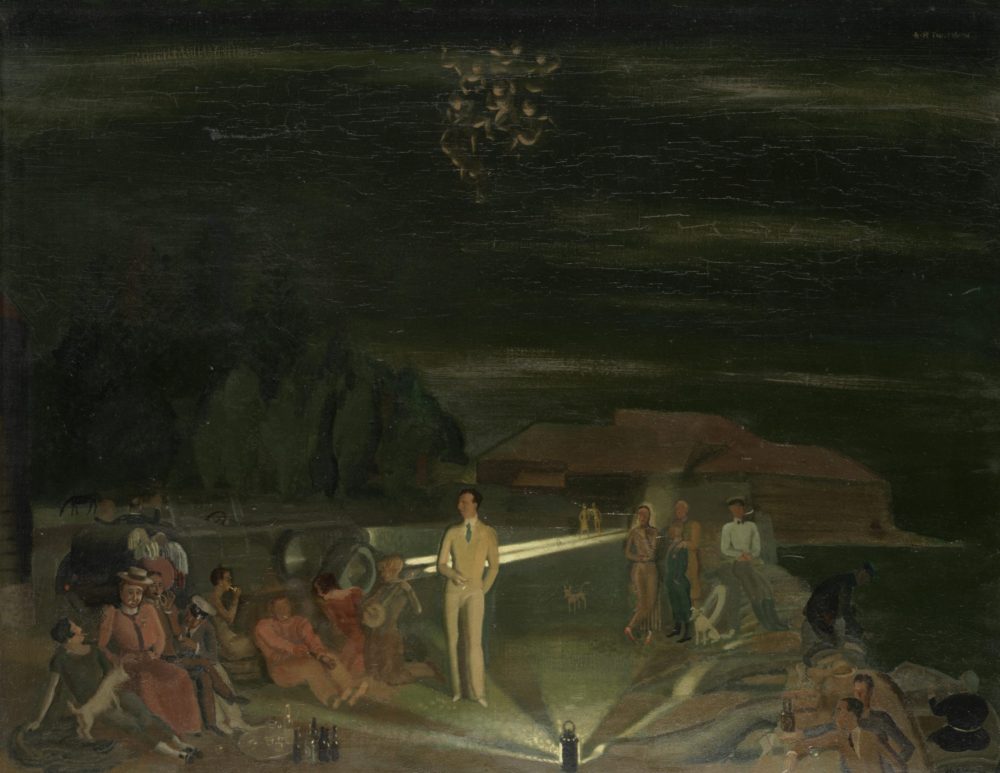 There is a story here, but I don’t know it. See Alfred Reginald Thompson. Evening Picnic (Undated). Oil on canvas.
There is a story here, but I don’t know it. See Alfred Reginald Thompson. Evening Picnic (Undated). Oil on canvas.
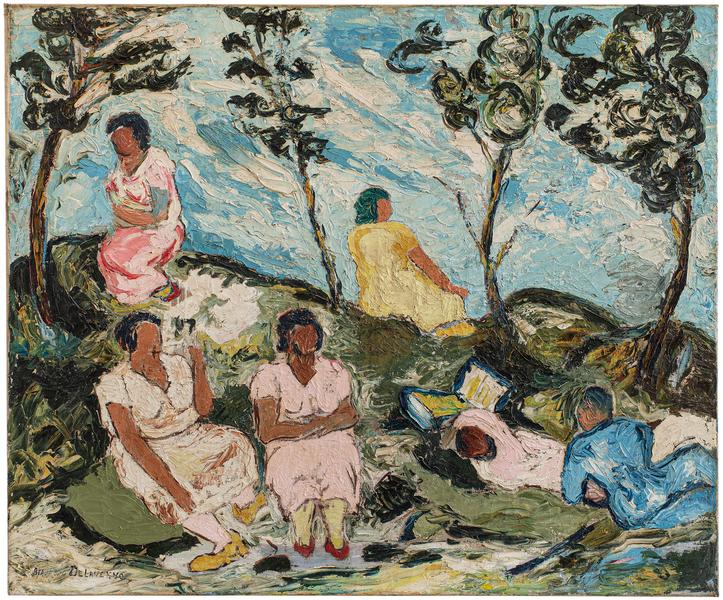 Delaney‘s paintings during the Harlem Renaissance in the 1930s and 1940s were figurative. Over time, he shifted to abstraction during his life in Paris in the 1950s. Both The Picnic and Distant Horizons are no-food picnics. Featured Image: The Picnic. Oil on canvas....
Delaney‘s paintings during the Harlem Renaissance in the 1930s and 1940s were figurative. Over time, he shifted to abstraction during his life in Paris in the 1950s. Both The Picnic and Distant Horizons are no-food picnics. Featured Image: The Picnic. Oil on canvas....
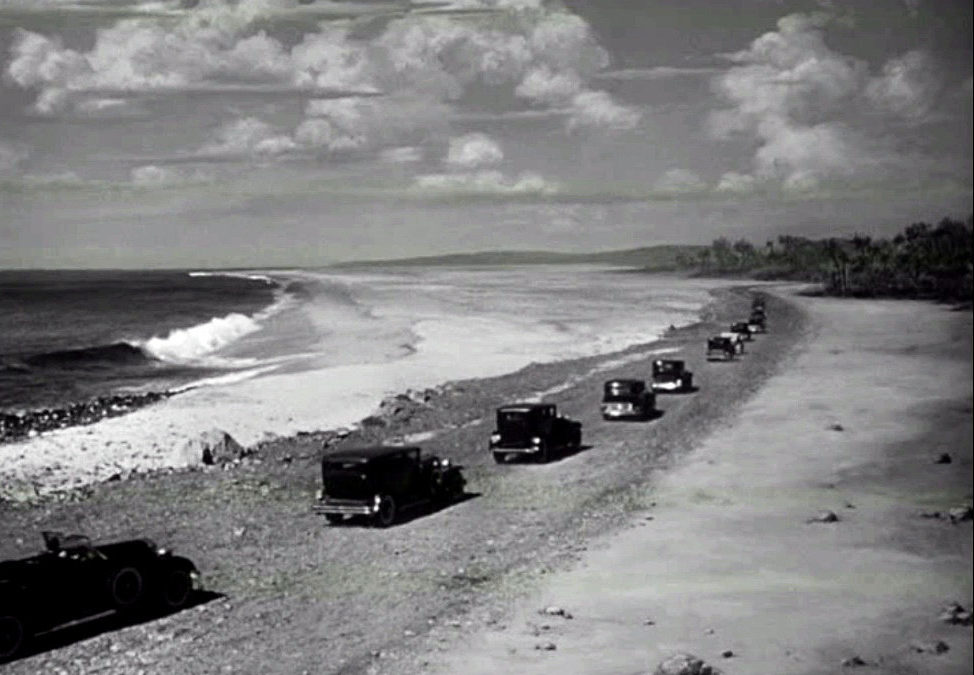 Only 2:07 seconds of screen time, but it’s an unpleasant crackling picnic that ends with a slap in the face. Despite the southern Florida heat, Charles Foster Kane and Susan Alexander are lounging by a crackling fireplace in Xanadu, their palatial estate: he in...
Only 2:07 seconds of screen time, but it’s an unpleasant crackling picnic that ends with a slap in the face. Despite the southern Florida heat, Charles Foster Kane and Susan Alexander are lounging by a crackling fireplace in Xanadu, their palatial estate: he in...
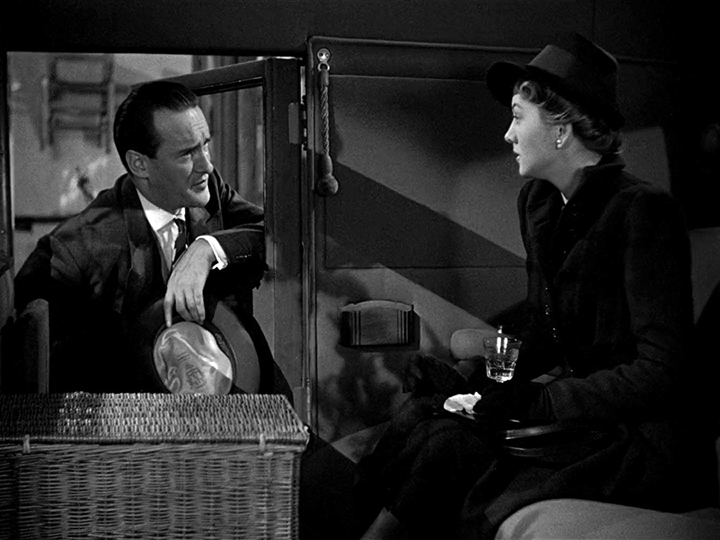 Hitchcock added a picnic to the screenplay of Rebecca to reveal Jack Flavell’s intention to blackmail Max De Winter for the murder of his deceased wife, Rebecca. Flavell’s disquieting revelation occurs on the day of the inquest regarding Rebecca’s...
Hitchcock added a picnic to the screenplay of Rebecca to reveal Jack Flavell’s intention to blackmail Max De Winter for the murder of his deceased wife, Rebecca. Flavell’s disquieting revelation occurs on the day of the inquest regarding Rebecca’s...
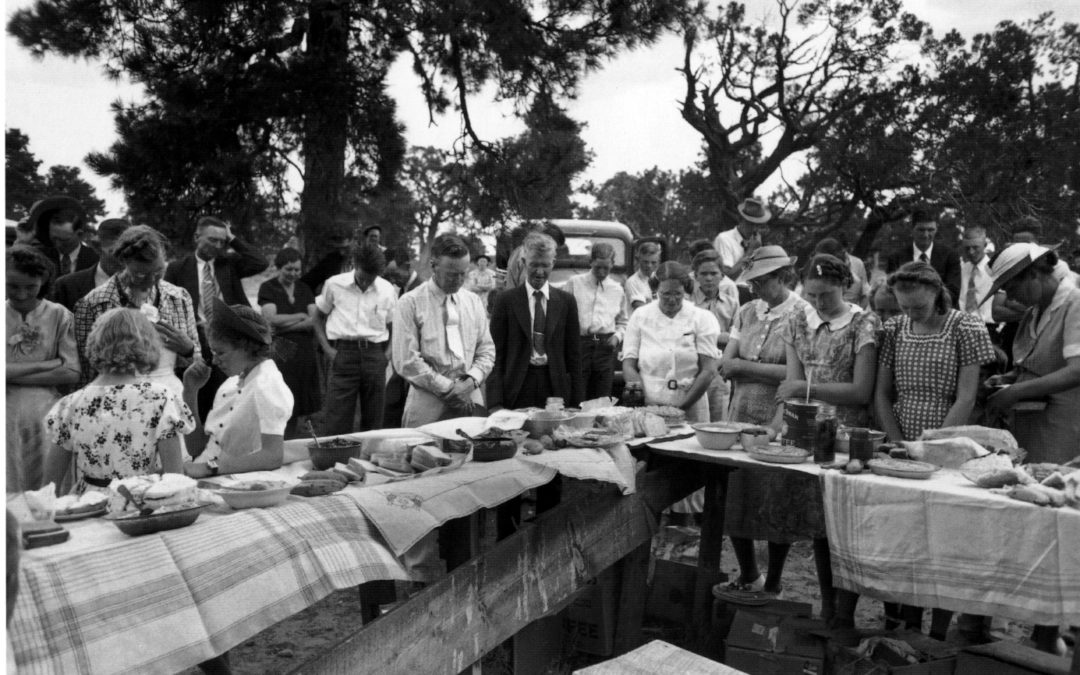 Lee’s photograph of The Blessing at Dinner on the Grounds at the All-Day Community Sing, Pie Town, New Mexico (1940) records a community’s religious and social life at the behest of the Farm Services Bureau. See Lee’s collection of photographs of the...
Lee’s photograph of The Blessing at Dinner on the Grounds at the All-Day Community Sing, Pie Town, New Mexico (1940) records a community’s religious and social life at the behest of the Farm Services Bureau. See Lee’s collection of photographs of the...
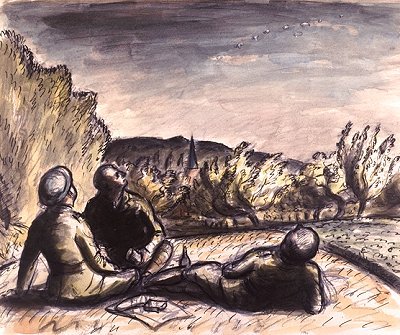 Three soldiers picnicking on the grass lookup watching antiaircraft fire. Their easy postures belie their anxiety. This jarring juxtaposition of peace and war in 1940 is Edward Ardizzone’s record of the Nazi air force lightning attacks on the English and French...
Three soldiers picnicking on the grass lookup watching antiaircraft fire. Their easy postures belie their anxiety. This jarring juxtaposition of peace and war in 1940 is Edward Ardizzone’s record of the Nazi air force lightning attacks on the English and French...
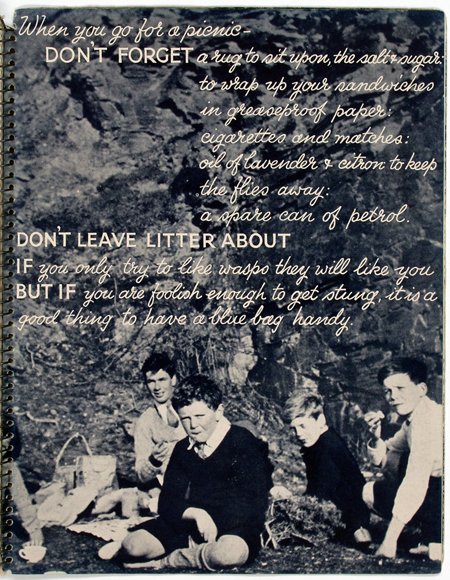 Betjeman’s picnics are filled with the nostalgia of his youth. The earliest appears in Cornwall (1934), a series of The Shell County Guides that he and John Beddington conceptualized. A photograph of boys at a picnic (perhaps Betjeman among them ) shows the group...
Betjeman’s picnics are filled with the nostalgia of his youth. The earliest appears in Cornwall (1934), a series of The Shell County Guides that he and John Beddington conceptualized. A photograph of boys at a picnic (perhaps Betjeman among them ) shows the group...
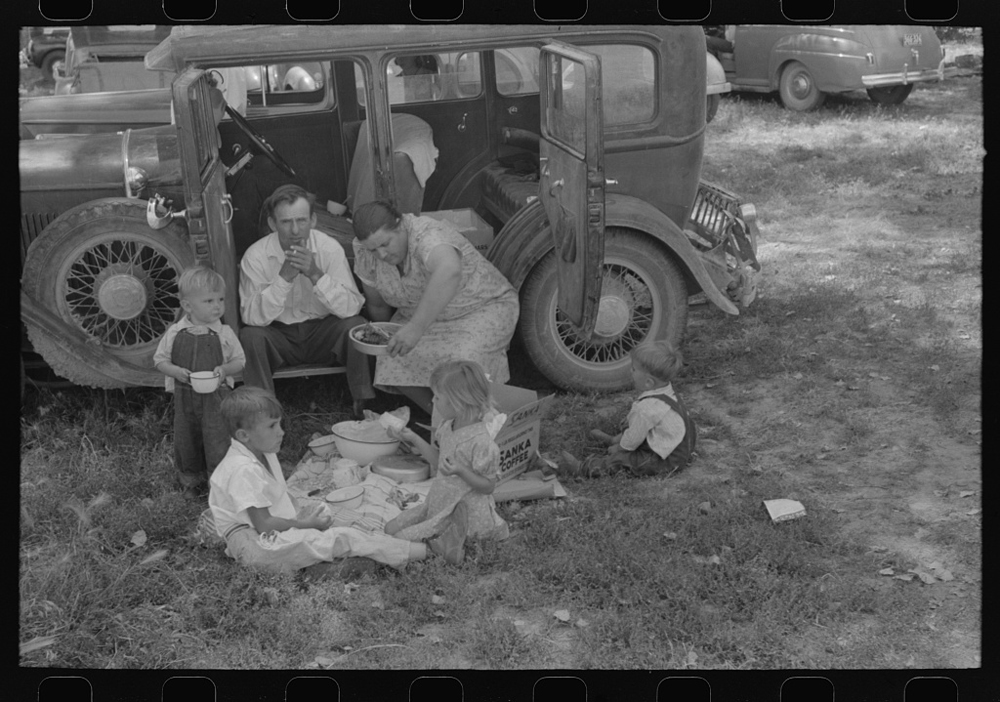 Lee’s A Family Picnic on the Fourth of July at Vale, Oregon (1941) is a photographic document of a family picnicking on the running board of their Ford. The doors are open, and Mom and Dad sit on the running boards. Children sit on the ground beside a picnic cloth....
Lee’s A Family Picnic on the Fourth of July at Vale, Oregon (1941) is a photographic document of a family picnicking on the running board of their Ford. The doors are open, and Mom and Dad sit on the running boards. Children sit on the ground beside a picnic cloth....











